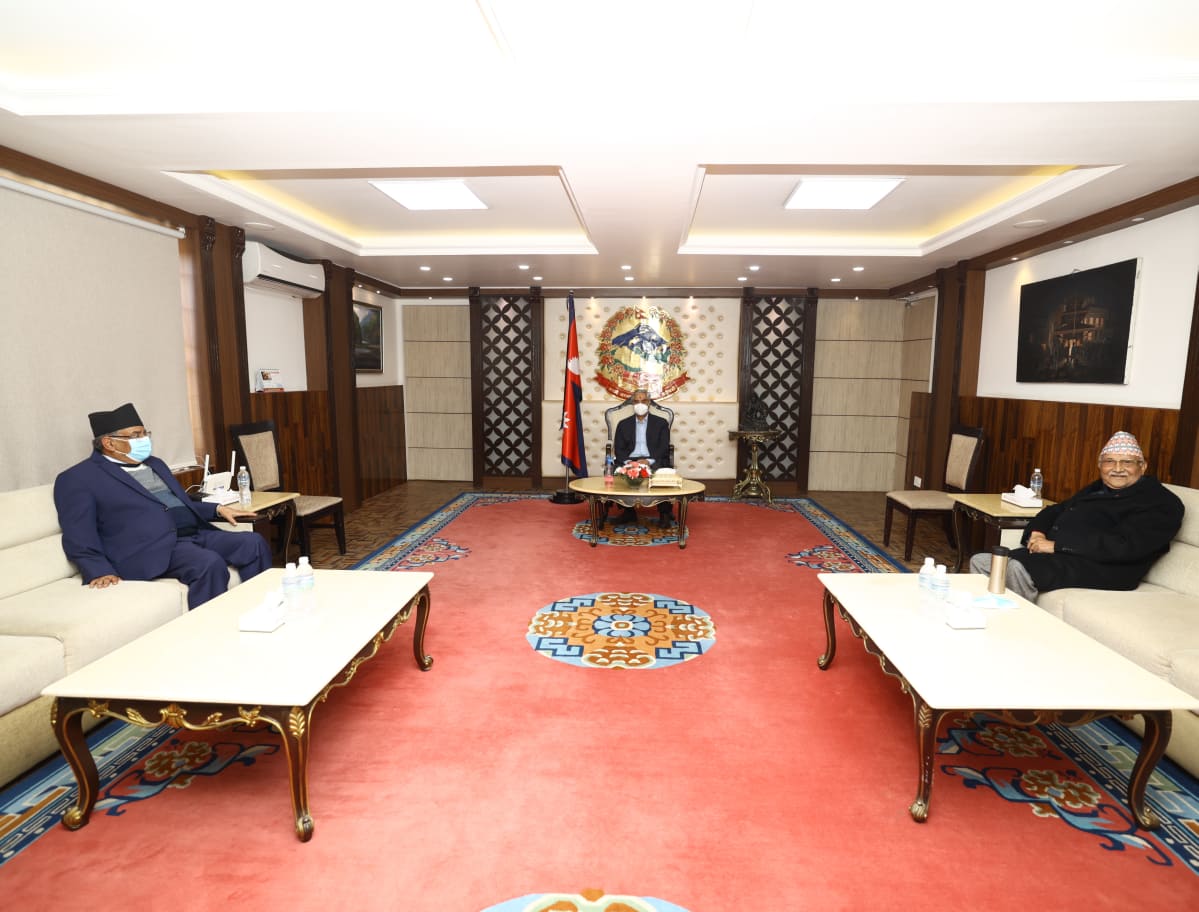Nepal’s politics is at a turning point after the Gen Z movement that shook the foundations of power. Young people were angry about unemployment, corruption, and the repeated failure of leaders to deliver change.
The protest is a testament to the fact that the youth of the nation do not want to see the same leaders swapping chairs while the country struggles with rising unemployment, corruption, and poor governance. The fall of the last government and the rise of a new one under Sushila Karki sent a clear message: the old guard cannot continue doing business as usual with the same old faces at the helm. The traditional political parties — Nepali Congress, CPN-UML, and Maoist Centre — are under pressure. If they want to stay relevant, they must act quickly and bring new leadership to the front.
Inside the Nepali Congress, frustration has been growing for years. The September 8–9 protest deepened this frustration. Party President Sher Bahadur Deuba has led government after government, yet corruption scandals kept piling up and reforms remained a distant hope. Though Deuba maintains a strong hold in his party, he appears clueless about how to drive progress in the nation on any front. Young leaders in the party complain that they are not given space to lead or even to speak up.
The party still calls itself the guardian of democracy, but it risks becoming a club of seniors and elites who are happy to sing paeans to its past achievements, conveniently ignoring the rapid changes taking place in Nepali society with the advent of the internet, modernity, and social media.
Great Leadership: A Road Less Traveled

For NC to survive, Deuba — who, along with his spouse Arzu Rana, suffered physical attacks during the Gen Z unrest — must now step aside and hand over leadership to a new-generation leader who understands the changing values of this era and can respond to the grievances of young people. Congress must reset itself to address both the immediate and long-term needs of the people, such as jobs, better education, a corruption-free society, and good governance. Singing praises of past achievements will take the party nowhere. It must win the hearts of youths born after the 1990s.
The situation inside CPN-UML is not much better. KP Sharma Oli turned the party into a one-man show, sidelining internal debate and promoting only those loyal to him. He is hugely unpopular among Gen Z youths due to his outdated style of functioning, his arrogance during the protests, and his refusal to read the public mood. This has cost both the nation and his party heavily. Many younger UML leaders know this but are afraid to speak their minds openly for fear of backlash from Oli and his supporters.
If Oli stays at the helm, UML risks losing its status as the largest communist party. There is growing talk that the party needs a collective leadership to rebuild trust — the only way forward. But this is only possible if Oli himself steps down. UML supporters are ready to listen to fresh faces who can bring discipline and a sense of direction to the party.
For the Maoist Centre, the crisis runs even deeper. Once the force that led a decade-long insurgency and reshaped the state, it is now seen as just another bargaining group clinging to power. Pushpa Kamal Dahal Prachanda’s leadership has lost its edge.
The party’s traditional base has drifted away, leaving it with shrinking influence. Prachanda stepping down would give the Maoists a chance to rebuild around real issues such as rural development, inequality, and job creation. If he clings on, the party risks fading into political memory, remembered only for its role in ending the monarchy.
Meanwhile, the three party bosses already face internal strife. In the Nepali Congress, Deuba’s rival faction led by Shekhar Koirala is expected to intensify pressure on him following the protest. Once Deuba returns from the hospital, the rival group is likely to step up demands for his resignation.
Dahal, too, faces competition from Janardan Sharma and other dissidents, who are likely to escalate pressure for his resignation.
Rivalries in UML have also deepened. Just before the protest, the Oli–Bidya Bhandari conflict surfaced within the party. Now, many senior leaders who backed Bidya against Oli are expected to push for his resignation.
At the same time, the three top leaders are facing grave corruption allegations from protesters. Videos circulating online claimed that when Gen Z protesters stormed their houses, they found wads of cash stacked in special rooms along with expensive jewelry and liquor — all suggesting deep corruption. However, these allegations have not been independently verified.
The call for an overhaul of the three parties has grown louder since the Gen Z protest toppled the government and angry youths torched the houses of top leaders as well as major government buildings and parliament.
The NC, UML, and Maoists still have time to reset. Leadership change is no longer just a demand from second- or third-rung leaders; it has become a question of survival for the parties themselves. If they act now, they can regain public trust and shape the next phase of their future — and of Nepal’s politics. If they delay, they risk watching their own organizations collapse. The young generation is ready to act, and time, as always, will not wait.





































